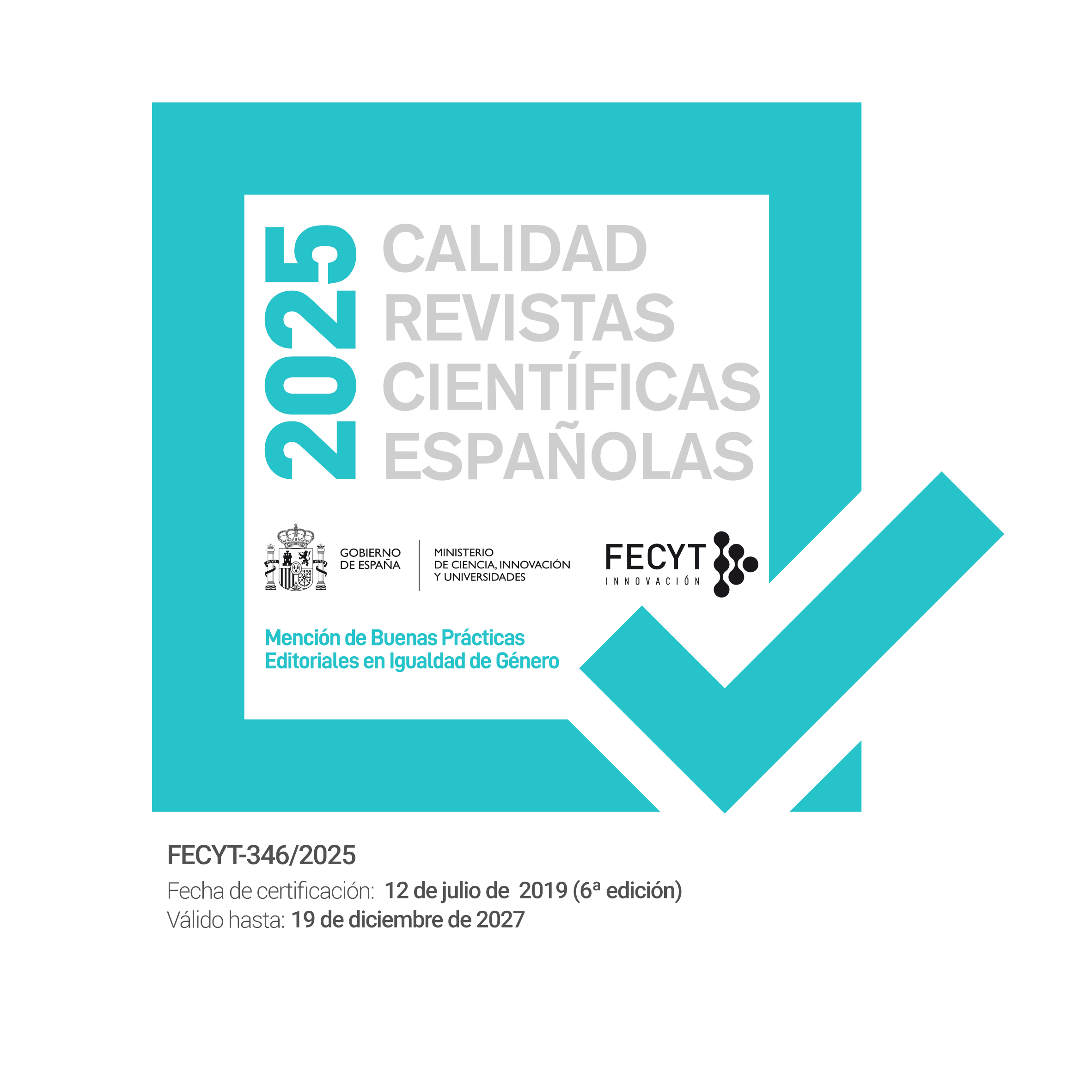Neoliberalisation of nature: Conservation, Energy transition, Greenwhasing, commodification, extractivism, colonisation and alteration of land rights and land uses
Keywords:
neoliberalisation of nature, neoliberal conservation, energy transition, extractivisms, colonisationAbstract
The special issue of Encrucijadas "Neoliberalisation of nature" aims to problematise the new green business strategies that have emerged to mitigate the degradation of natural capital. The articles, classic text, bibliographical essays and interviews that make up the monograph reveal a common thread in which the adverse consequences of these new green businesses are narrated. Firstly, it is stressed that these businesses do not express themselves in ways that change behaviour, lifestyles or much less the production system, in order to reduce the material or carbon footprint. Secondly, the expansion of these businesses not only does not contribute to the mitigation of environmental degradation, but can also be used as mechanisms for the expansion of capitalism. Thirdly, such businesses involve the expulsion of indigenous or peasant communities from the land on which they live, or even the contamination or destruction of that land. In other cases, resource use, authority and management are restructured, potentially and, as has happened in many places, alienating local residents from their own livelihoods and epistemicising local knowledge. Finally, it is emphasised that many of these green deals involve continuing a colonial power structure that involves an ecological transition for the wealthy in the global north at the cost of altering the lives of communities in the global south and many rural communities in the global north.
Downloads
References
Arboleda, Martín (2020). Planetary mine: Territories of extraction under late capitalism. Verso Trade.
Brockington, Dan (2009). Celebrity and the environment. Zed Books. https://doi.org/10.5040/9781350218932
Brockington, Dan y Rosaleen Duffy (2011). Introduction: Capitalism and Conservation: The production and reproduction of biodiversity conservation. En D. Brockington y R. Duffy (eds.) Capitalism and Conservation (pp.1-15). Wiley-Blackwell. https://doi.org/10.1002/9781444391442.ch
Brockington, Dan, Rosaleen Duffy y Jim Igoe (2008). Nature unbound: conservation, capitalism and the future of protected areas. Earthscan.
Castree, Noel (2008) Neoliberalising Nature: The Logics of Deregulation and Reregulation. Environment and Planning A: Economy and Space, 40(1), 131-153. https://doi.org/10.1068/a3999
Durand, Leticia; Anja Nygren y Anne de la Vega-Leinert (2019). Naturaleza y neoliberalismo en América Latina. UNAM.
Escalante, Fernando (2018). Historia mínima del neoliberalismo. El Colegio de México.
Garcia, Ernest (2021). Ecología e igualdad. Hacia una relectura de la teoría sociológica en un planeta que se ha quedado pequeño. Tirant lo Blanch.
Garcia, Ernest. (2004). Medio ambiente y sociedad: la civilización industrial y los límites del planeta. Alianza.
Gómez Baggethun, Eric y Rudolf de Groot (2007). Capital natural y funciones de los ecosistemas: explorando las bases ecológicas de la economía. Ecosistemas, 16(3), 4-14.
Gómez Baggethun, Eric; Rudolf de Groot, Pedro Lomas y Carlos Montes (2010). The History of Ecosystem Services in Economic Theory and Practice: From Early Notions to Markets and Payment Schemes. Ecological Economics, 69(6), 1209-1218. https://doi.org/10.1016/j.ecolecon.2009.11.007
Igoe, Jim (2017). The nature of spectacle: on images, money, and conserving capitalism. University of Arizona Press. https://doi.org/10.2307/j.ctt1qqhfzd
Igoe, Jim y Dan Brockington (2007). Neoliberal conservation: a brief introduction. Conservation and Society, 5(4), 432-449. https://www.jstor.org/stable/26392898
Krauss, Judith; Andrea Jiménez Cisneros y Marina Requena-i-Mora (2022). Mapping Sustainable Development Goals 8, 9, 12, 13 and 15 through a decolonial lens: falling short of 'transforming our world'. Sustainability Science, 1-18. https://doi.org/10.1007/s11625-022-01112-3
Latouche, Serche (2006). ¡Abajo el desarrollo sostenible! Viva el decrecimiento convivencial! En Colectivo Revista Silence, Objetivo Decrecimiento. ¿Podemos segir creciendo hasta el infinito en un planeta finito?, (pp. 23-35). leqtor.
Liverman, Diana y Silvina Vilas (2006) Neoliberalism and the Environment in Latin America. Annual Review of Environment and Resources, 31: 327-363. https://doi.org/10.1146/annurev.energy.29.102403.140729
Mann, Geoff y Joel Wainwright (2018). Leviatán climático. Una teoría sobre nuestro futuro planetario. Malpaso.
McAfee, Katheleen (1999). Selling nature to save it? Biodiversity and green developmentalism. Environment and planning D: society and space, 17(2), 133-154. https://doi.org/10.1068/d170133
McCubbin, Sandra (2019). The Cecil Moment: Celebrity environmentalism, Nature 2.0, and the cultural politics of lion trophy hunting. Geoforum, 108, 194-203. https://doi.org/10.1016/j.geoforum.2019.10.015
Requena-i-Mora, Marina y Dan Brockington (2021). Seeing environmental injustices: the mechanics, devices and assumptions of environmental sustainability indices and indicators. Journal of Political Ecology, 28(1), 1-28. https://doi.org/10.2458/jpe.4765
Riechmann, Jorge; Jose Manuel Naredo, Ramón Bermejo, Antonio Estevan, Carlos Taibo, Juan Carlos Rodríguez y Joaquín Nieto (1995). De la economía a la ecología. Trotta.
Riofrancos, Thea (2020). Resource radicals: From petro-nationalism to post-extractivism in Ecuador. Duke University Press. https://doi.org/10.1215/9781478012122
Sousa Santos, Boaventura (2010). Descolonizar el saber, reinventar el poder. Ediciones Trilce.
Downloads
Published
How to Cite
Issue
Section
License
Copyright (c) 2022 Encrucijadas. Revista Crítica de Ciencias Sociales

This work is licensed under a Creative Commons Attribution-NonCommercial-NoDerivatives 4.0 International License.
Los autores/as conservan los derechos de autor y ceden a la revista el derecho de la primera publicación, con el trabajo registrado con la licencia de atribución de Creative Commons Reconocimiento-NoComercial (CC-BY 4.0), que permite a terceros utilizar lo publicado siempre que mencionen la autoría del trabajo y a la primera publicación en esta revista. Encrucijadas permite y se anima a todas las personas autoras a depositar la versión final publicada en repositorios institucionales o temáticos de acceso abierto, cumpliendo en caso necesario los términos establecidos por la entidad financiadora de la investigación.





